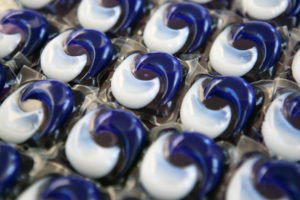 There are perfectly good nutritional reasons for New Brunswick’s decision to ban chocolate milk in schools (as well as all other flavoured milks and juices.) With overweight and obesity rates at 30 per cent in Canadian children between ages 5 and 17, it makes sense for schools and local governments to encourage the consumption of less sugary drinks and foods.
There are perfectly good nutritional reasons for New Brunswick’s decision to ban chocolate milk in schools (as well as all other flavoured milks and juices.) With overweight and obesity rates at 30 per cent in Canadian children between ages 5 and 17, it makes sense for schools and local governments to encourage the consumption of less sugary drinks and foods.
Still, for some, this news will be met with pangs of nostalgia. The memories of having chocolate milk in a school cafeteria – the ritual of putting the straw in the little cardboard box (always tricky to open) and enjoying a special treat with friends – this collective experience of Canadian school children may soon be a thing of the past. Chocolate milk is not just an incidental part of this nostalgia; in fact, I’d argue that chocolate milk has a central cognitive role in these kinds of emotionally rich memories.Read more…


 Is your house tidier than it used to be? If it is, then you have probably read Marie Kondo’s international bestselling book The Life-Changing Magic of Tidying Up (2011). Kondo’s book is ostensibly a manual for home improvement. She suggests that our home environment should not be a repository for limitless amounts of stuff, but that we should surround ourselves only with what we really need, along with those items that bring us ‘joy’. She provides a guide for culling what we already have, organising what we keep, and limiting the acquisitive tendencies that threaten to fill (or re-fill) our living spaces with more and more things. But as many readers discover, Kondo’s book goes beyond being just a guide for cleaning house: it can also be seen as a blueprint for rebuilding a life. Homes are so intimately connected to how people see themselves that to reorganise a home is to change how one lives.
Is your house tidier than it used to be? If it is, then you have probably read Marie Kondo’s international bestselling book The Life-Changing Magic of Tidying Up (2011). Kondo’s book is ostensibly a manual for home improvement. She suggests that our home environment should not be a repository for limitless amounts of stuff, but that we should surround ourselves only with what we really need, along with those items that bring us ‘joy’. She provides a guide for culling what we already have, organising what we keep, and limiting the acquisitive tendencies that threaten to fill (or re-fill) our living spaces with more and more things. But as many readers discover, Kondo’s book goes beyond being just a guide for cleaning house: it can also be seen as a blueprint for rebuilding a life. Homes are so intimately connected to how people see themselves that to reorganise a home is to change how one lives. The home ownership meme can be very powerful
The home ownership meme can be very powerful What we eat as children shapes how we think about food as adults
What we eat as children shapes how we think about food as adults